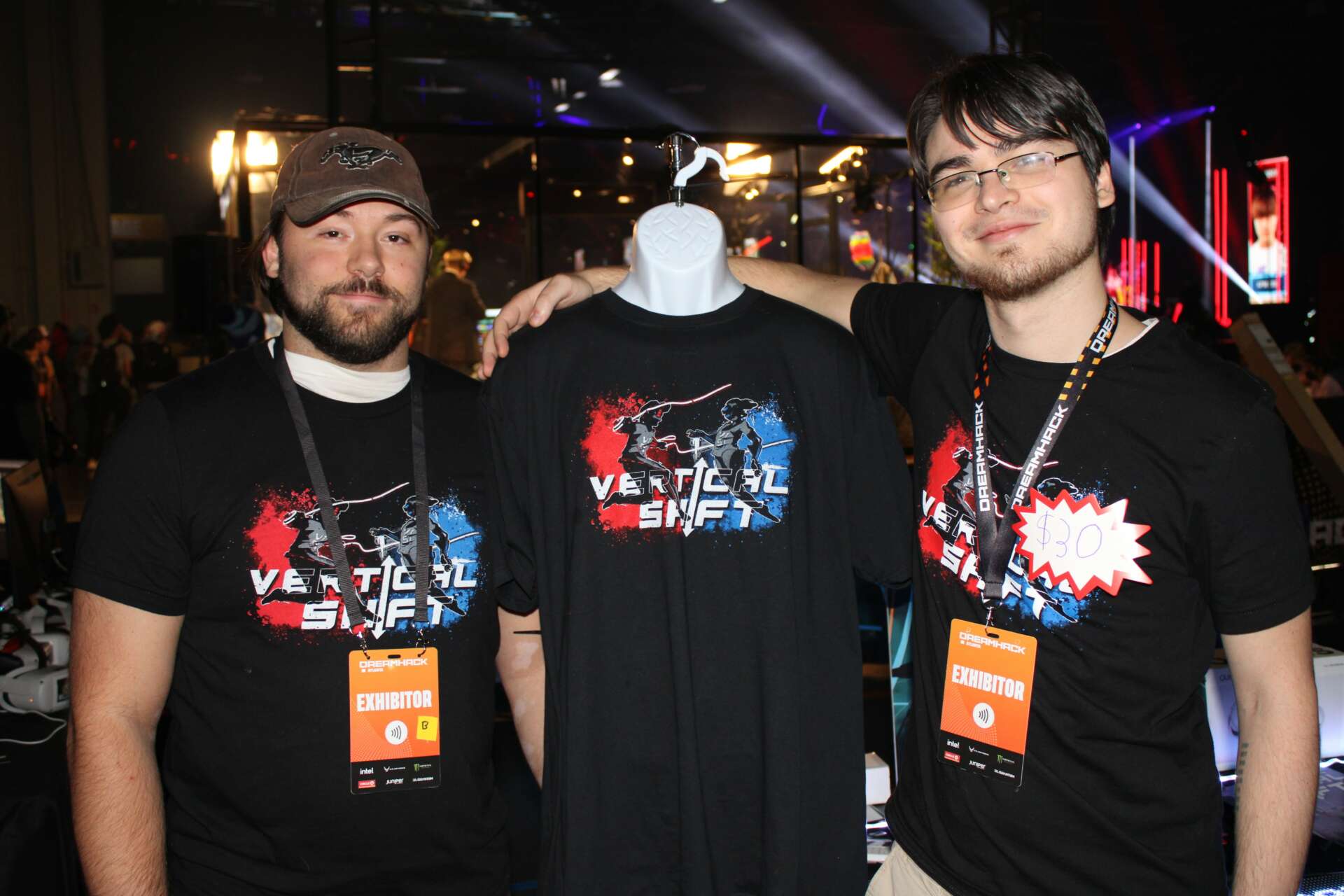Alright – so today we’ve got the honor of introducing you to Sean Feeser. We think you’ll enjoy our conversation, we’ve shared it below.
Sean, looking forward to hearing all of your stories today. Has Covid resulted in any major changes to your business model?
For many years, remote work was a trend steadily growing throughout several industries. However, once COVID reached the US, this trend rapidly became the new normal for every company that was capable of doing so.
Even as we strive to put COVID behind us, many workers are claiming that company-wide remote work is here to stay.
Corrupted Media was founded at the beginning of the COVID-19 Pandemic to provide work opportunity for game design graduates who were victim to the nationwide hiring freezes.
Since the beginning of our company, we have always operated as a 100% remote operation. However, our team mates are not the only ones who are collaborating online.
Corrupted Media’s mission is to make Virtual Reality games that can provide social atmospheres online similar to the kinds you would find at local parks and gyms. For many of the players of our first game Vertical Shift, we provided them a sense of community and social connection even when they were quarantined inside of their homes.
Virtual Reality provides a sense of realistic social gathering that traditional video games and video calls have never been able to accomplish. The ability to see player avatars in 3D who are able to gesture with their heads and hands naturally creates the feeling of the other person truly being right next to you.
Virtual Reality should never replace the real world, but it can provide excellent opportunities which may not be otherwise possible. Not only were friends and families able to connect while they were in quarantine, but even today people are able to share a virtual space together even when they live in separate cities, states, or countries.
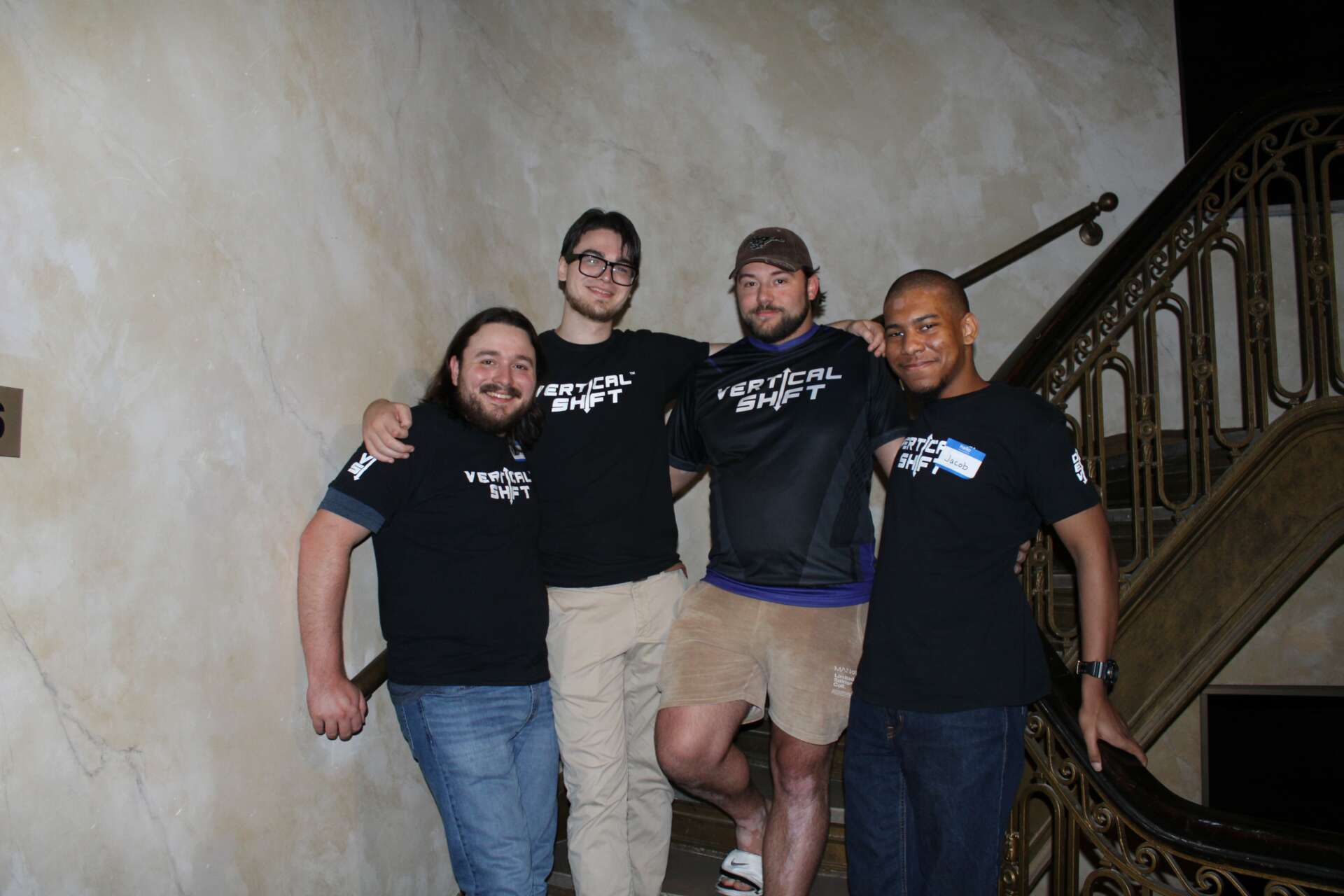
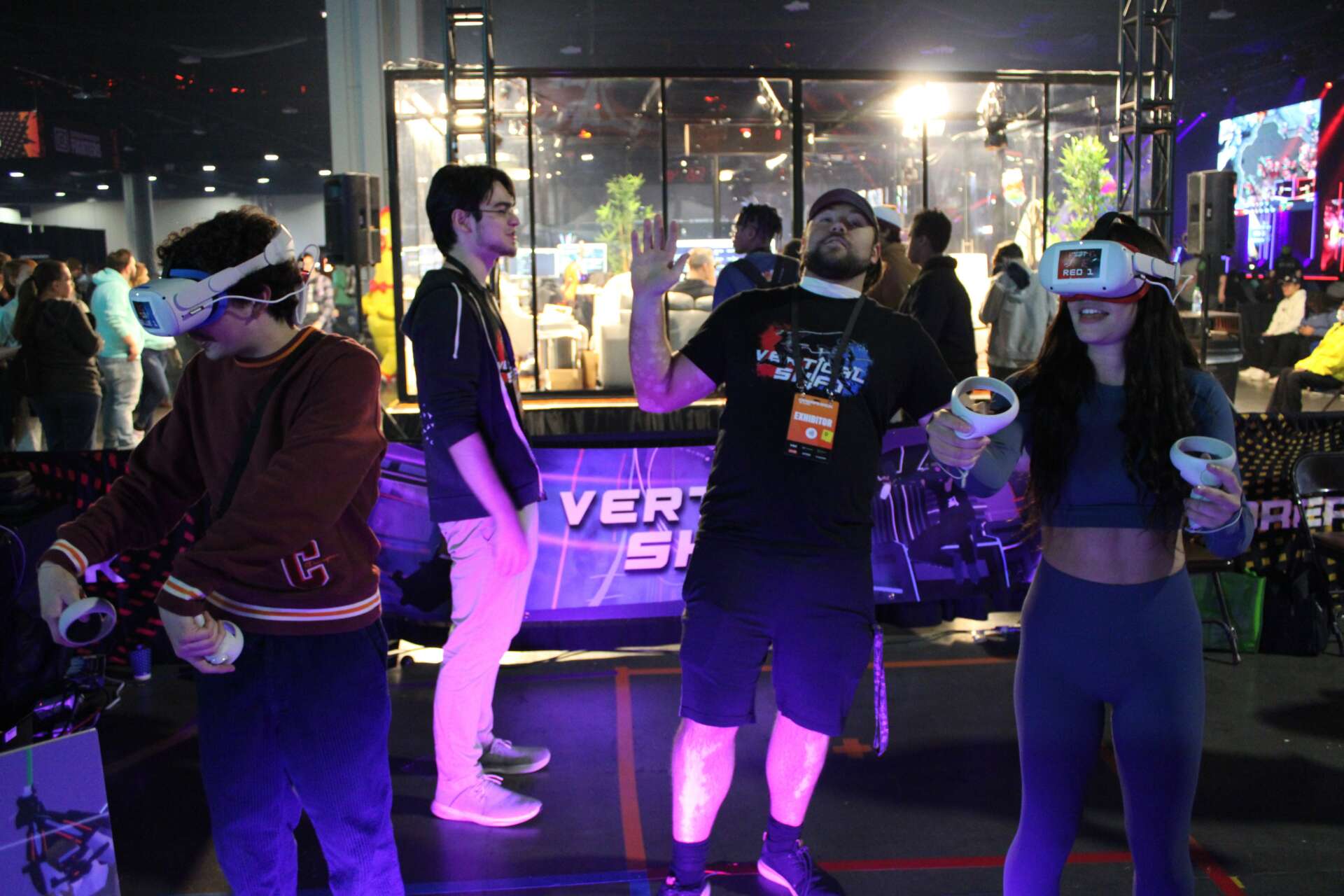
Sean, before we move on to more of these sorts of questions, can you take some time to bring our readers up to speed on you and what you do?
My name is Sean Feeser (Sometimes online people know me as Sean the Bomb). I am an Game Developer who specializes in Virtual Reality, Augmented Reality, and Artificial Intelligence.
Video games were always incredibly impactful on me as a child. They helped me learn, make friends, and inspired me to want to do big things in the world. I decided to attend Kennesaw State University’s Computer Game Design and Development program because I wanted to make the games that inspired the next generation the same way the games I played growing up inspired me.
Since then, I have started two small business with the aspirations to have a positive impact on the world.
First, I am a Co-Founder of Corrupted Media who developed consumer-based entertainment products. Our first game, Vertical Shift, is a Virtual Reality E-Sport where players compete in various athletic sports using virtual grapple hooks, jetpacks, and wingsuits. We have a public Beta currently available on Steam Early Access and Oculus App Labs! We also run tournaments every month for our active users.
Second, I am founder of SeantheBomb.com which provides enterprise technology solutions. I primarily focus on corporate training using Virtual Reality, Sales Product Visualization using Augmented Reality, and Marketing Engagement Research using Artificial Intelligence. My mission is to improve the effectiveness of other small businesses by giving them access to resources that can improve their workforce while saving them from unnecessary costs, risks, challenges. I am available for both contracting and consultation, and I am always happy to work with clients to help them understand what the best solution is for them!
I am incredibly proud of the way that all of my work has touched the lives of the people who face challenges and help to ease or even resolve the issues that bother them!
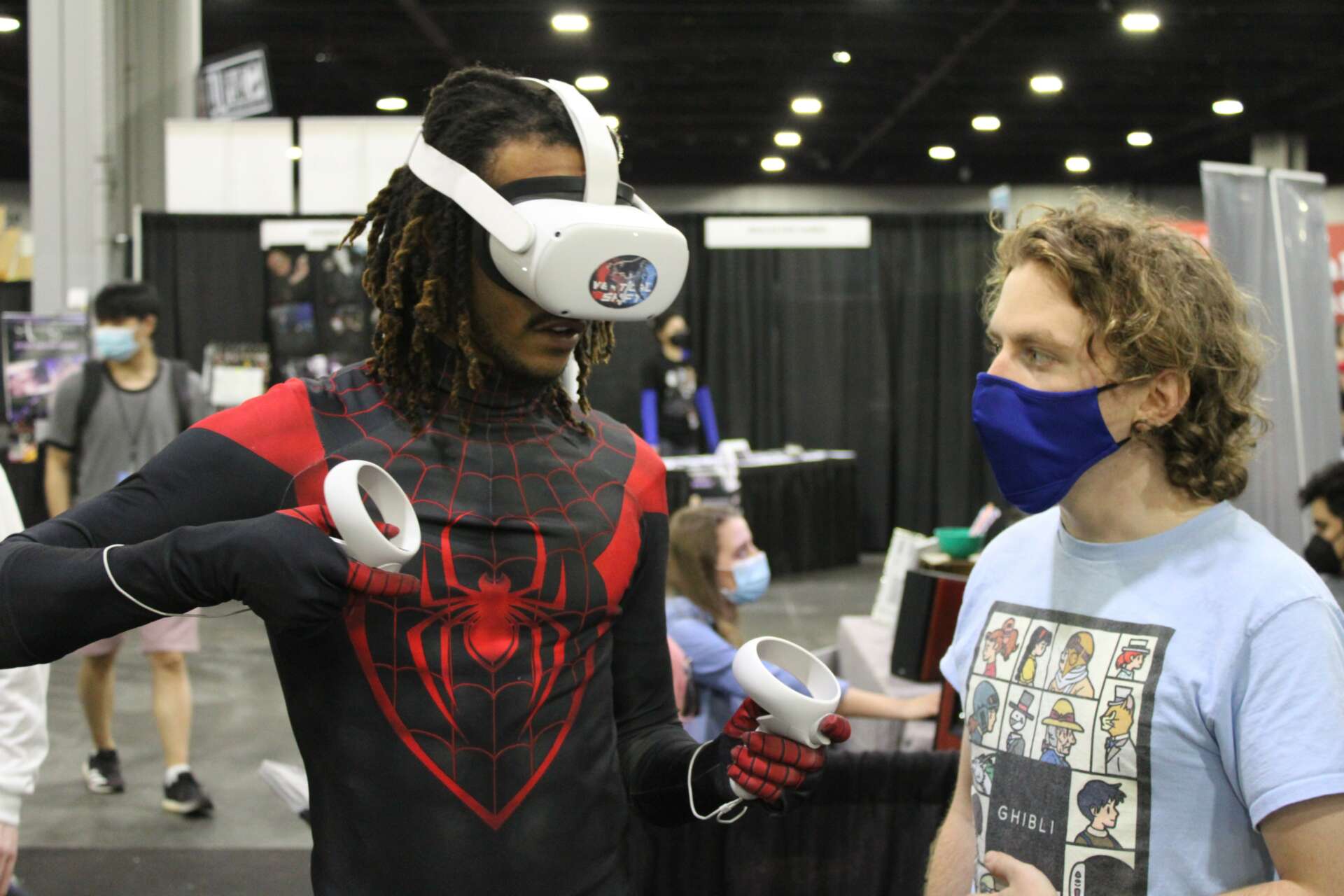
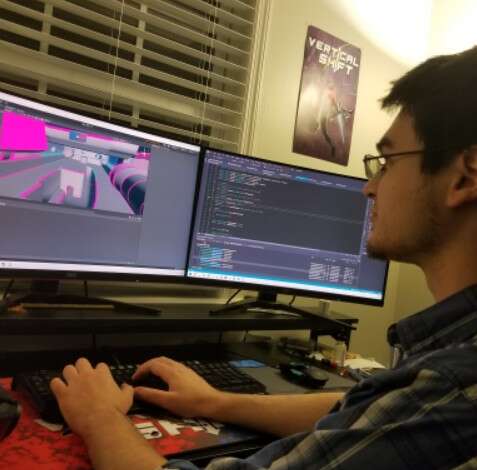
How did you put together the initial capital you needed to start your business?
Like I imagine is the case with most people, the story of funding Corrupted Media was a combination of having the determination to put yourself out there to take action and eventually being in the right place at the right time.
Ever since I was a child I had big dreams of starting my own business. I remember in Elementary school we would sometimes have Entrepreneurial day where local entrepreneurs would come to our classes and talk about what its like to own their own business. To me, this was like career day only way cooler. Instead of wearing a firefighter hat we would fill out worksheets to complete our own business plans and ventures.
While I was an undergrad student at Kennesaw State University, I knew I wanted to work in game development but I didn’t have the first clue that I would eventually be the co-founder of my own game development company. That started one day when I saw a flyer on campus that there was going to be an Entrepreneurship Seminar later that week, and I knew right away I wanted to attend it.
That seminar was the day I met my longtime professor and mentor, Gregory Quinet. Quinet had just taken over control of KSU’s entrepreneurship program which I didn’t even know our school had. He started off the seminar to explaining to us why the entrepreneurship program was previously struggling. Initially, they targeted business majors and tried to give them the skills to start their own business. The issue, he said, is that business students had plenty of skills to sell and manage a business, but they didn’t have the actual skills or knowledge to develop products that were crucial to starting a business.
This was what he aimed to fix. Instead of targeting business majors to start business, he wanted to target engineers and computer scientists to gain the business skills to start their own companies. I was immediately sold on this idea. By the end of the workshop, he gave us all the info we needed to start signing up for entrepreneurship classes. Not only did I sign up for these classes, I adjusted the concentration of my major to allow myself to focus on the entrepreneurial aspect of independent game development (which wasn’t actually something the school offered, but they were willing to work with me)
By the time I was approaching graduation, I had learned so much from Quinet and I knew that entrepreneurship would have to be a path that I take, whether it worked out or not. I hadn’t even realized Quinet was working behind the scenes to kick off a special new opportunity for entrepreneurial engineers like me.
In 2019 KSU launched the Mookerji Innovation Fund, which provides grant money to alumni who are starting a small business in the innovative technology space. Working closely with Quinet and several other mentors within KSU’s entrepreneurship program, we were able to put together a business plan that managed to get approved for some of this grant.
Since graduation, we have used the Mookerji Innovation Fund to provide most (but not all) of our start-up capital. In the two years since the company was founded, we have continued to receive multiple rounds of funding by continuing to meet the milestones and expectations that they have laid out for us.
If it wasn’t for KSU, Quinet, and Mookerji (the fund’s donor) Corrupted Media would not have been able to accomplish everything that is has today!
Any advice for managing a team?
I have learned a lot about managing a team’s productivity and morale since the founding of Corrupted Media, but I have found that there is still a lot to learn.
So far, the key strategy I try to focus on is managing the balance between giving teammates the freedom and space to work comfortably while continuing to set and maintain reasonable expectations and milestones.
In game design, we talk about 4 pillars of internal motivation which is what resonate with players and keep them working hard to win the game. I like to think this same ideology applies to team management.
Social Connection – People like to feel they are a part of a community. Its important to not let people get so drowned in their work that they become isolated from their team.
Show that we are good at it – People like to feel like they are good at the things they do. Its important to make sure you provide milestones and demos that allow people to showcase their work and be proud of what they accomplished.
Feel powerful – People like to feel that what they do makes an impact. Give people the ability to make their own decisions and having the feedback channels to understand their decisions impacted the final outcome.
Meaning – People like to contribute towards something bigger than themselves. One of the things I love most about game development is how it encompasses so many forms of art that force us to collaborate with people from different backgrounds and skillsets in order to make our dreams become a reality. Whenever we look at our games, we don’t just see our work, we see a beautiful blend of every team member’s work combined!
Contact Info:
- Website: verticalshift.net
- Instagram: https://www.instagram.com/verticalshiftvr/
- Linkedin: https://www.linkedin.com/company/corrupted-media-productions/
- Twitter: https://twitter.com/VerticalShiftVR
- Youtube: https://www.youtube.com/@verticalshift4480
- Other: Enterprise Technology Solutions: Seanthebomb.com
Image Credits
Most of these photos were taken by Lorne Feeser, Corrupted Media’s CEO


